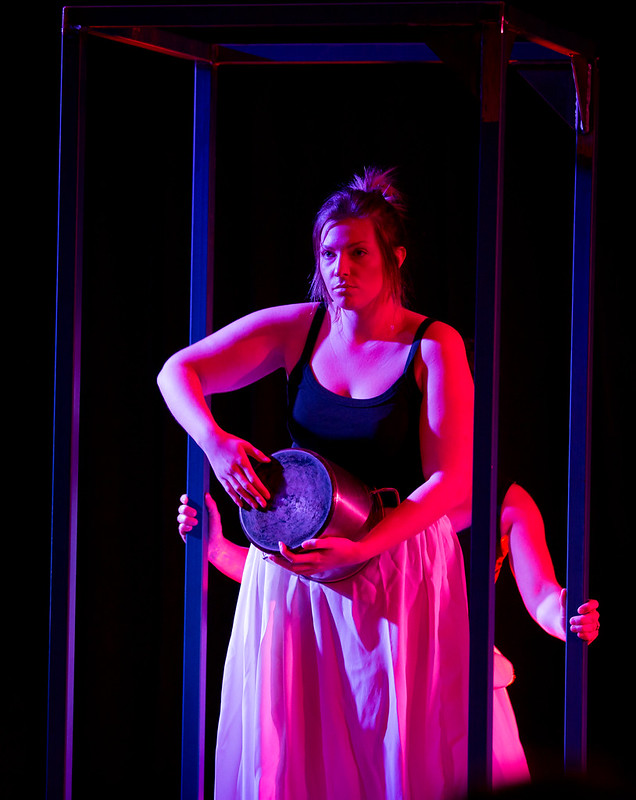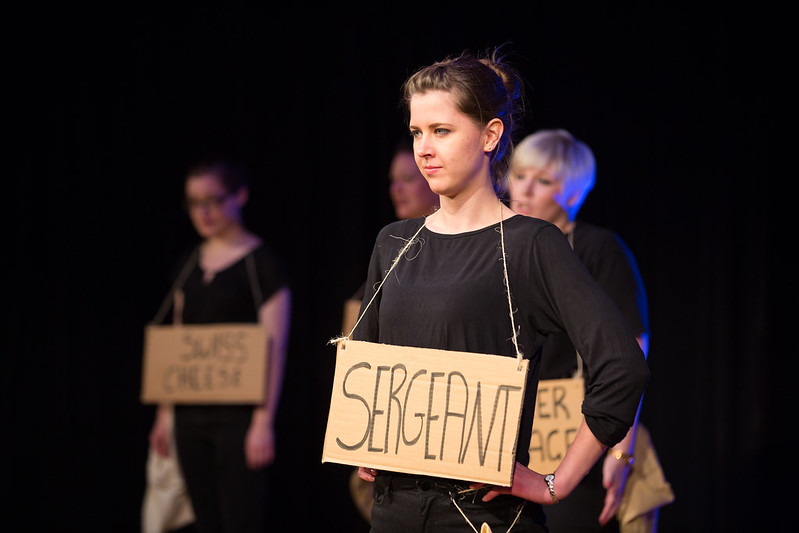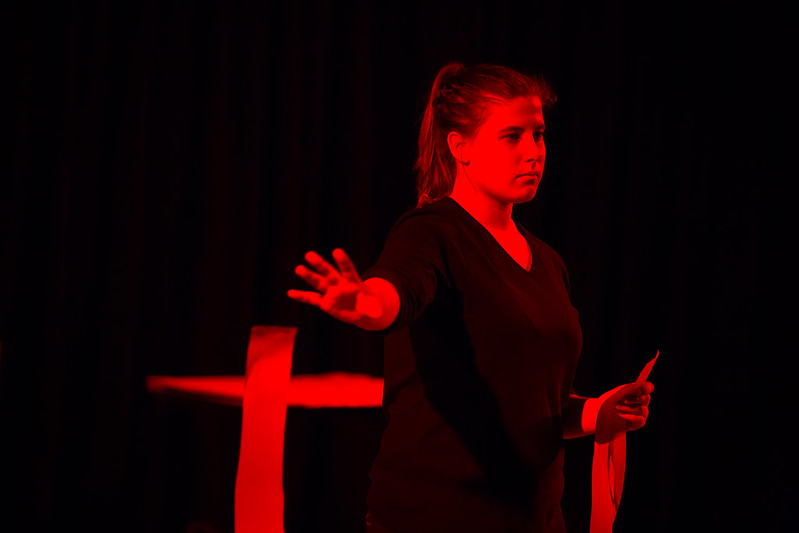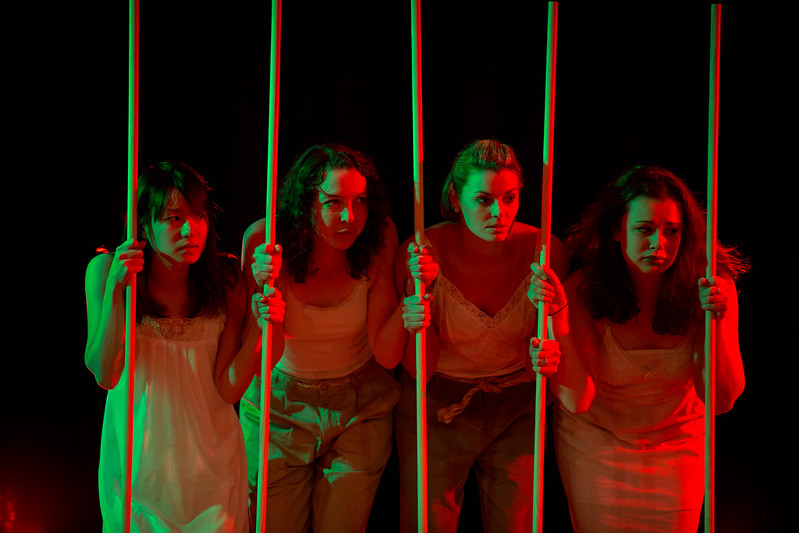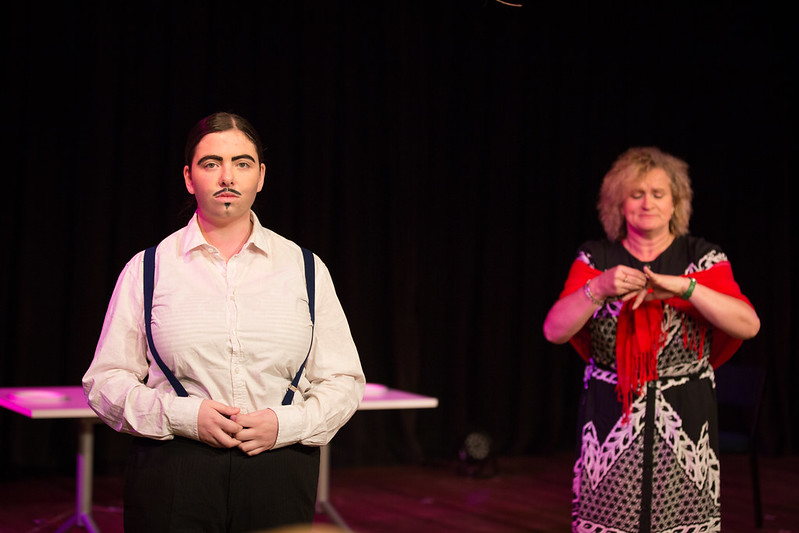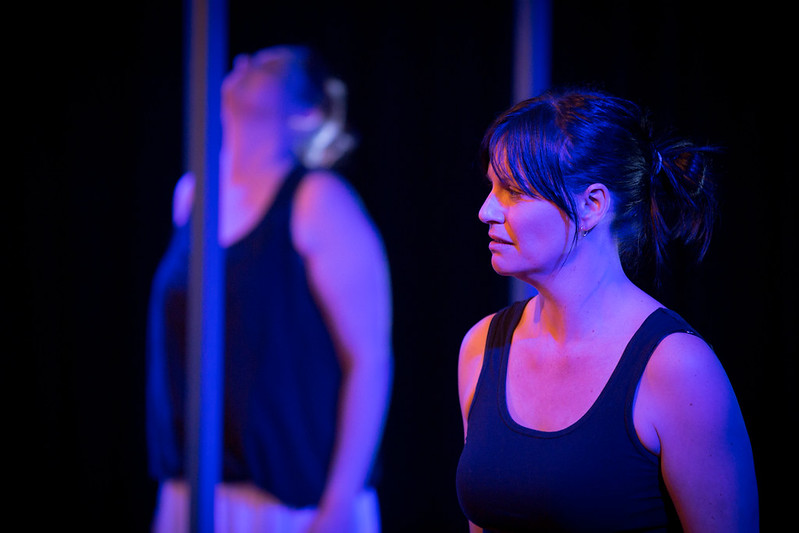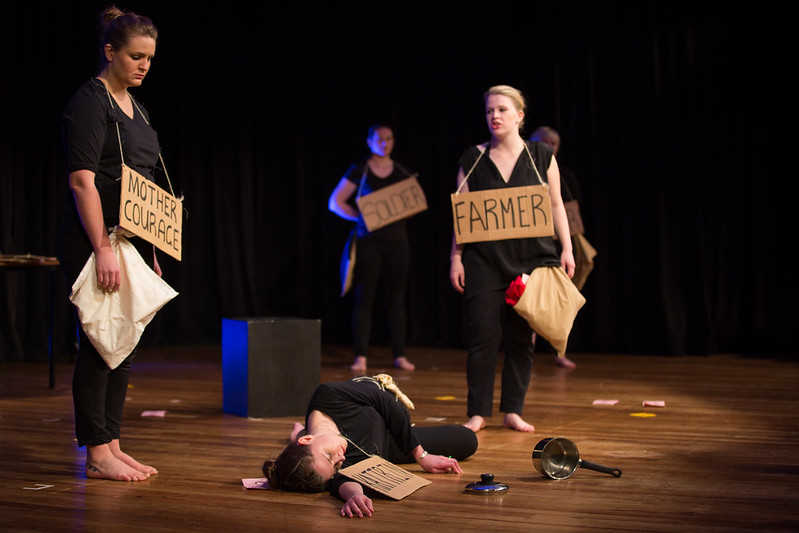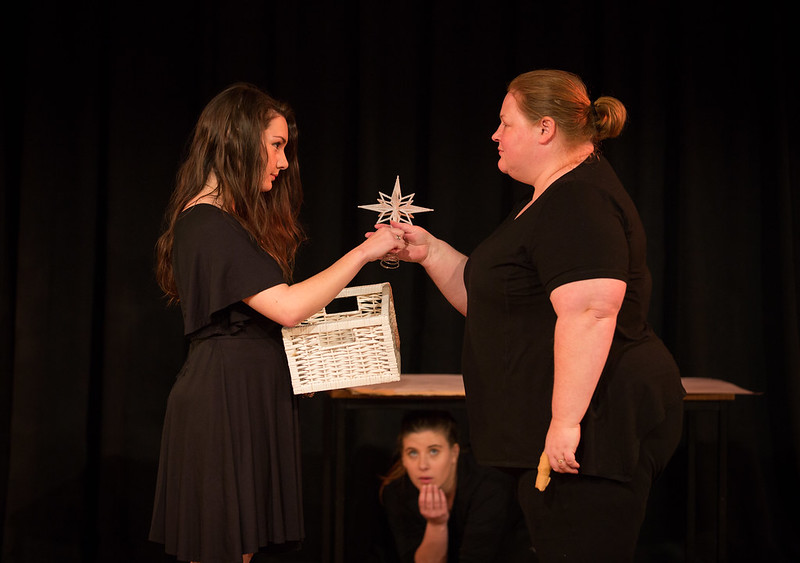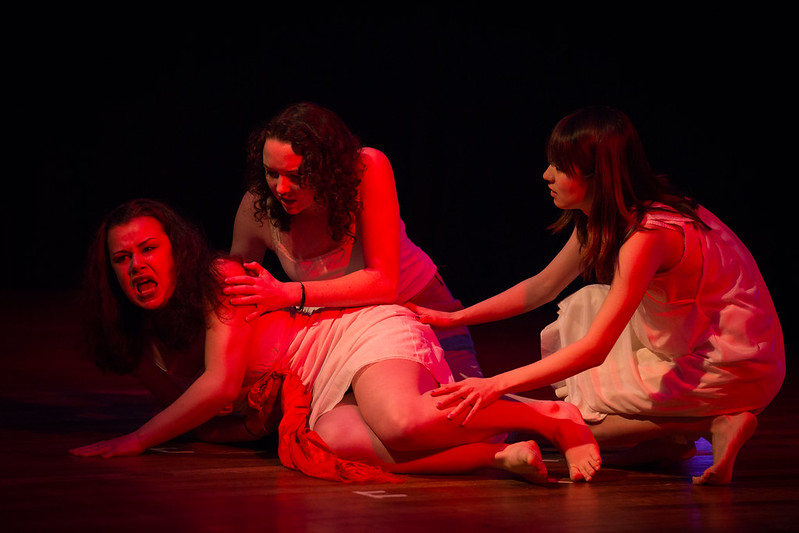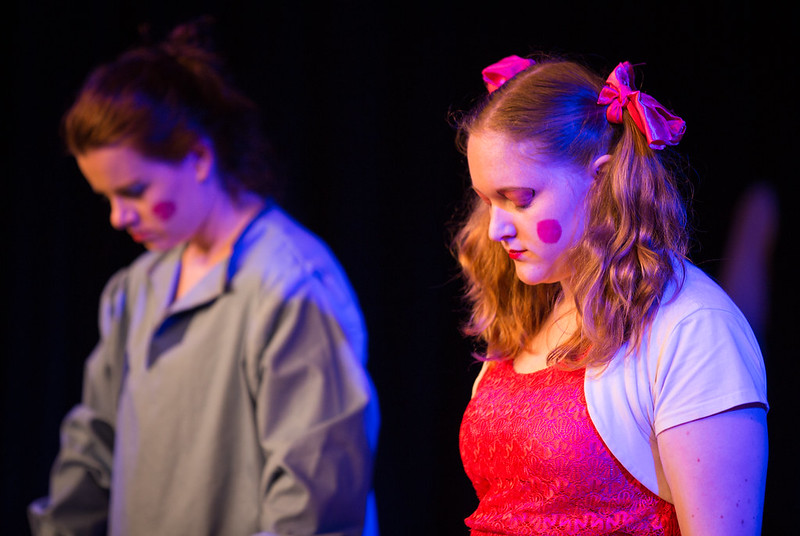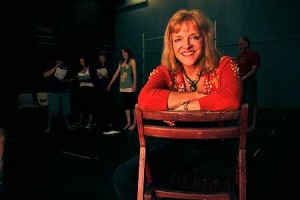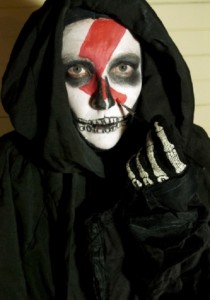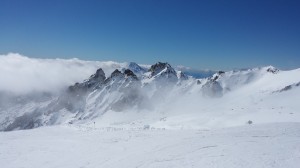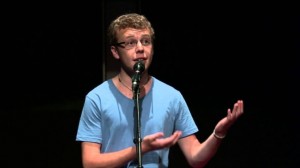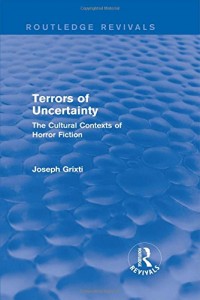
Associate Professor Joe Grixti’s book Terrors of Uncertainty has been re-released, along with other classic humanities texts, as part of the Routledge Revivals series
From Gothic and horror fiction to e-waste and the grand successes of The Naturalist, it’s been another very busy month for EMS research and scholarship – check out our news in this latest Research Roundup!
• Dr Erin Mercer co-edited a special issue of M/C – A Journal of Media and Culture on the Gothic, and published an article on the difficulties faced by contemporary New Zealand writers attempting to use the Gothic genre without reactivating colonialist tropes of haunting Maori, skeletal remains and a Gothicised New Zealand landscape. In the issue’s editorial, titled ‘Gothic: New Directions in Media and Popular Culture’ Dr Mercer and co-editor Dr Lorna Piatti-Farnell of AUT discussed the continuing importance of the Gothic mode in contemporary culture and how that mode is constantly evolving into new forms and manifestations. They argued that the “multi-faceted nature of the Gothic in our contemporary popular culture moment is accurately signaled by the various media on which these special issue essays focus, from television to literature, animation, music, and film. The place occupied by the Gothic beyond representational forms, and into the realms of cultural practice, is also signaled, an important shift within the bounds of Gothic Studies which is bound to initiate fascinating debates. The transformations of the Gothic in media and culture are, therefore, also surveyed, so to continue the ongoing critical conversation on not only the place of the Gothic in contemporary narratives, but also its duplicitous, malleable, and often slippery nature”. Check out the special issue at http://journal.media-culture.org.au/index.php/mcjournal/showToc/current along with Dr Mercer’s article on Supernaturalism and Settlement in New Zealand Gothic Fiction – tantalisingly titled “A deluge of shrieking unreason” at http://journal.media-culture.org.au/index.php/mcjournal/article/viewArticle/846
• Dr Radha O’Meara and Dr Alex Bevan were co-organisers of a symposium entitled Loops and Splices: Changing Media Technologies, on August 1st 2014. The symposium explored a recent turn in media scholarship that uncovers the overlooked and under-examined media technologies that contribute to historical and contemporary practice. Papers looked at how different media technologies have functioned in relation to historical and social practices, aesthetic traditions and specific cultural moments. Keynote speaker Prof Ian Christie (Anniversary Professor of Film and Media History at Birkbeck College, University of London) presented on ‘Denying depth: uncovering the hidden history of 3D in photography and film.’ English and Media Studies staff were also well represented as presenters at the symposium (more below). You can see EMS staff member Dr Sy Taffel’s blog about the symposium at http://mediaecologies.wordpress.com/
• Dr Sy Taffel presented a paper entitled “ArchEcologies of Ewaste” at the Loops + Splices Symposium. The paper explored how media archaeology and media ecologies can be complementary methods in examining a range of issues pertaining to materiality and the damaging effects of the toxic digital detritus that we discard. He focused particularly on ewaste in New Zealand, where there currently is no mandatory (or even free) nationwide ewaste collection scheme, unlike in the EU where the WEEE directive mandates that all ewaste is recycled in high tech local facilities. More than 80,000 tonnes of ewaste annually enter New Zealand’s landfills, adding noxious elements like mercury, arsenic and lead to the soil and water table. Dr Taffel argued that ideas from media archaeology (a way of exploring past technology with a view to creatively reassembling and reusing technology rather than seeing earlier products as obsolete) combined with media ecologies (a reincorporative model of cyclical technological redesign) could point us towards a new age of ‘repair’ ethos, where waste was reduced and new designs resulted from the creative clash of old and new. You can see Dr Taffel’s presentation at http://prezi.com/iap-xqlsvb2o/archecologies-of-e-waste/
• Dr Kevin Glynn presented on “Technologies of Indigeneity: Māori Television and Convergence Culture,” a research focus that has emerged out of his Marsden-funded project working with Dr Julie Cupples (University of Edinburgh) on ‘Geographies of Media Convergence: Spaces of Democracy, Connectivity and the Reconfiguration of Cultural Citizenship.’ Dr Sy Taffel reports on his blog that “the paper focused on New Zealand media representations of the Urewera raids of 2007, and a more recent case where Air New Zealand, who prominently feature Maori iconography in their branding, terminated an interview with a woman for having a ta moko (traditional body markings), which they claimed would unsettle their customers. The paper explored impacts associated with the introduction of Maori TV and social networking software such as Facebook and Twitter on the ability of Maori to represent themselves and partake in mediated debates surrounding cultural identity”.
• Dr Allen Meek presented at Loops and Splices on “Testimony and the chronophotographic gesture.” The paper addressed the role of gesture in Holocaust testimony. Specifically it looked at some sequences from Claude Lanzmann’s long documentary film Shoah. Dr Meek argued that most scholarship has tended to discuss this film in terms of the transmission of the trauma of the Holocaust from the survivor to the viewer. Instead, he drew on the Italian philosopher Giorgio Agamben’s essay on gesture to develop a different reading of Shoah. Agamben argues that photography and the moving image have taken the autonomy of human gesture away from the individual person. When human gestures and movements are recorded they become a form of visual information that can be used for purposes of political control and economic exploitation. Dr Meek’s paper showed how Holocaust testimony forms part of a larger history of recorded gesture in the cinema that we need to consider if we are to understand its relation both to the Nazi system of power and to our recording and viewing of testimony today.
• In other recent research highlights, Associate Professor Joe Grixti’s book Terrors of Uncertainty: The Cultural Contexts of Horror Fiction has been re-released as part of Routledge’s ‘Revivals’ series of classic and important books. Routledge Revivals is a programme designed to reissue a wealth of out-of-print and unavailable titles written by some of the leading academic scholars of the last 120 years. To date, the programme includes titles by the likes of Sir Andrew Motion, Hermione Lee, Zygmunt Bauman, Karl Jaspers, Malcolm Bradbury, Simone Weil, Emile Durkheim, Charles Kindleberger and W. Arthur Lewis, now along with our own Head of School of English & Media Studies, Dr Grixti. Terrors of Uncertainty covers horror fiction from Frankenstein and Dracula to Psycho and The Chainsaw Massacre, illustrating how horror fiction has provided our culture with some of its most enduring themes and narratives. In selecting the text for reissue Routledge notes that: “Considering horror fiction both as a genre and as a social phenomenon, Joseph Grixti provides a theoretical and historical framework for reconsidering horror and the cultural apparatus that surrounds it. First published in 1989, this book looks at shifts in the genre’s meaning – its fascination with excess, its commentaries on the categories and boundaries of culture – and at interpretations of horror from psychology, psychoanalysis, sociology, cultural and media studies”. Terrors of Uncertainty brings together a provocative range of perspectives from across the disciplines, which combine to raise important questions about the relationship between fiction and society, and the way in which we use fiction to resolve or evade our fears of uncertainty. Available in both hardcopy and e-book at: http://www.routledge.com/books/details/9781138794511/
• Essential New Zealand Poems: Facing the Empty Page was recently published by Random House featuring work by a number of staff and PhD students from the School of English and Media Studies: Dr Ingrid Horrocks, Dr Jack Ross, Tim Upperton, Sarah-Jane Barnett, and Aleksandra Lane. Ingrid Horrocks and Aleksandra Lane were named by reviewer Philip Matthews in the Dominion Post as two of half a dozen of “the best of a new and younger generation” of poets to whom readers should “Pay attention now and in the future” (Your Weekend, Dominion Post, 5 July 2014, p. 27). For more information, go to the publisher’s site at http://www.randomhouse.co.nz/books/siobhan-harvey-harry-ricketts-and-james-norcliffe/essential-new-zealand-poems-9781775534594.aspx
• A launch event for Essential New Zealand Poems – Facing the Empty Page held at PNCC Library on 7 August featured local poets Johanna Aitchison (former Visiting Artist and Tutor) and Tim Upperton (Tutor and current PhD stuent) in conversation with Harry Ricketts, poet, academic editor, reviewer and cricket writer. Johanna, Tim and Harry discussed and read from the recently published ‘Essential New Zealand Poems’ edited by Siobhan Harvey, Harry Ricketts and James Norcliffe (another former Massey University School of English & Media Studies Visiting Artist).
• A creative essay by Dr Ingrid Horrocks which forms a key part of Maddie Leach’s collaborative conceptual art project if you find the good oil let us know, features until September as part of the Walters Prize exhibition at the Auckland Art Gallery. See our previous post on this fascinating artwork and Dr Horrocks’ involvement here.
• Associate Professor Lisa Emerson along with Massey colleagues from Education and Communication ran multiple workshops in the lower North island for tertiary teachers on Literacy in the Transition to Tertiary Education. These presentations are based on their research, funded by the government’s Teaching and Learning Research Initiative (TLRI) fund, on transitioning into tertiary study through academic literacy development, and were supported by Ako Aotearoa.
• Dr Thom Conroy launched his book, The Naturalist, on Friday 15 August – the book then spent several weeks at Number One in the NZ Bestseller list. See previous post here. See also: Thom’s interview with Kim Hill, available at: http://www.radionz.co.nz/national/programmes/saturday/audio/20145074/thom-conroy-channeling-dieffenbach
• Senior Tutors Joy Green and Tim Upperton launched their books as part of the Kete Series – Manawatu Poetry at the PNCC Library on Poetry Day – Friday 22 August 2014. This series, published by HauNui Press features Joy’s and Tim’s poetry collections as well as that of Leonel Alvarado, School of Humanities. See more here.
• Dr Thom Conroy spoke on the Intersection between History and Fiction in Historical Fiction at Te Papa, 28 August.
• On August 25, two final-year undergraduate Bachelor of Communication students from CoHSS participated, with Associate Professor Elspeth Tilley, in an applied communication research project involving collaboration with Massey’s Joint Centre for Disaster Research, the Department of Conservation and Geological and Natural Sciences. The project, which involves gathering data on Mt Ruapehu to help understand and improve lahar warning and mountain safety communication effectiveness, was reported on Radio New Zealand’s Our Changing World Science and Environment program, see more here.
• Associate Professor Angie Farrow won won ‘Best Drama Script’ for her new play ‘Leo Rising’ at the Auckland Short and Sweet Festival 2014.
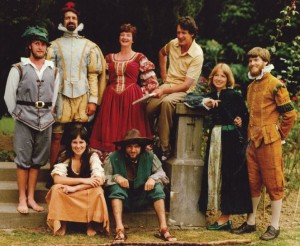
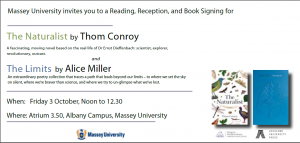
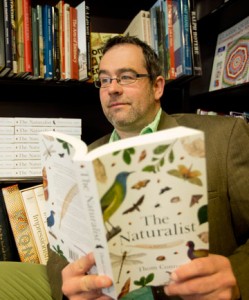 More high praise for Thom Conroy’s best-seller The Naturalist – see the Booksellers’ blog at
More high praise for Thom Conroy’s best-seller The Naturalist – see the Booksellers’ blog at 